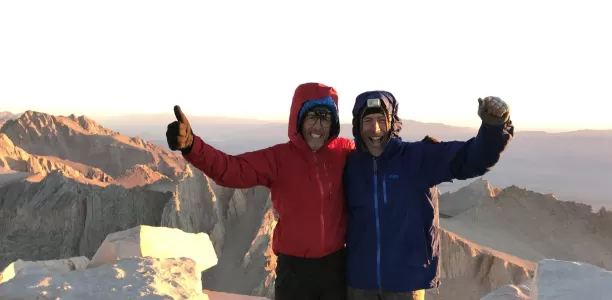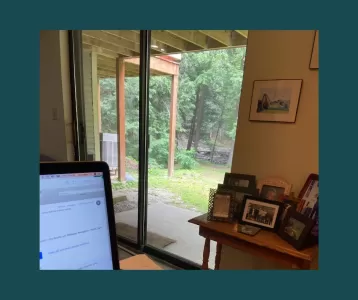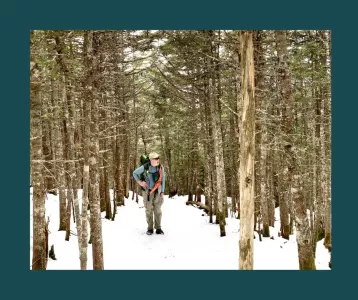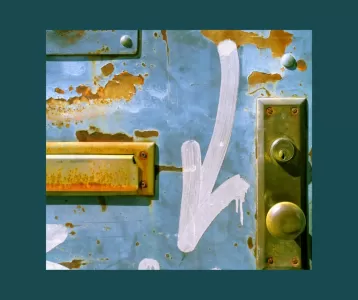Is Your Career Change a Response to a Symptom, Not the Cure?
Today things were different. I was no longer the stronger, more fit. My reserves were insufficient when all prior hikes they were more than enough to lead. Today I needed all the tricks I typically use in order to conserve energy to instead put them to use to keep up. I expected that I would be capable of willing my body up that hill. The objective was familiar, but I hadn’t noticed the change. I see this example as paralleling what my clients experience in their work. I thought I was putting in the same effort as my previous hikes but not getting similar results. We turned at the 2.5-mile mark, roughly 1.5 miles short of the summit and 1,500 feet short of the 3,300 vertical feet needed.
What happened? It’s easier to diagnose in hindsight because of the facts from the result. Prior performance, as they caveat when giving investment information, is not a predictor of future returns. This day was a grand example of that.
My clients come to me when they too have reached a point when what they had been doing is no longer satisfying or are not as successful. When they look forward, they can’t imagine another five years doing what they are doing. In many cases the disillusionment comes from the reward is no longer enough to justify the work required. The amount of work may have grown, or the purpose is now diminished.
Climbing 3,300 vertical feet over four miles is considered a moderate to somewhat difficult hike. I know it takes effort and I know I have been able to do it. What changed this time? I love being in the mountains, observing the change of ecosystems, and the views that emerge. I can pick my pace and path to the summit. One of the changes is my age. I am six months away from my 65th birthday and a year or two from my last 4,000-footer. Age then becomes a consideration. Was this my age having its say over what I am able to do? I have recently been hiking 3 to 7 miles in Southern New Hampshire and Maine on relatively flat trails so I know I can cover the distance without effort.
What had the greater impact is the past year we have lived in a socially distanced society. I stayed away from my health club and as a result lost the training that added the strength and endurance needed for such hikes. I reasoned the hiking I did would be enough of a base and my reserve would fill in what needed. The reserves were not enough to compensate for the loss of strength conditioning. My next step is to return to the gym after vaccination and restore my reserves for I still love doing that prep work as well as the effort to walk those mountains. It is my fun, my enjoyment.
How to judge if a Career Change is solving a problem
What about you? What is the reason you are stalled, disillusioned, frustrated, or even possibly depressed by your current work situation? Could it be you have been neglecting the fundamentals needed for when you reach a tough spot? Or could it be you lost your interest in the work? What’s the point of selling one more computer program that doesn’t solve world hunger? Could it be the kids graduating college has removed the reason you were willing to put in those 70-hour weeks? The questions to ask are:
- I have the skills needed to get the job done?
- Do I enjoy the effort to get the job done?
- Do I have the reason to get the job done?
To be satisfied in what we do at work we need some combination of the above. If you don’t have the skills, what do you need to do to acquire them or outsource these? If you no longer enjoy what it takes to get the job done, do you know what you enjoy doing? Lastly if you have lost contact with the purpose, it doesn’t matter how hard you work, how many successes you achieve, there will be a hole inside of you that will rob you of the joy and satisfaction of your effort. Its therefore likely if anyone of these are a “No”, you will resort to doing the minimum, you will be putting in your time, watching the clock, looking forward to the end of the day so you can bolt out the door to leave this behind you.
If you have lost interest in your work and maybe even hating your work, the solution may not be quitting or finding another job. Job hunting often times is crafted to get away from your current job rather than moving toward doing work that is rewarding. Maybe you never found work to be enjoyable. The answer could be in switching employers or careers or it could just as easily be a simple shift in your current situation. Let’s talk and see if it’s something you lost that can be recovered or how to find alternatives that will set you on a path to a better life.
My group of friends have been setting walking goals for a while. One has a goal to do 5,000 steps a day for four days over the next two weeks. We asked what the approximate distance for that number of steps would be. He speculated 2-3 miles. Online searches gave the conversion 3-4,000 steps would equal two miles. The more stairs in our days, the shorter the distance we will cover even with more steps counted. This makes sense since the tread, or flat surface, of a stair step is typically between 8 to 10 inches. The length of my stride is about 30 inches or two and a half feet. Taking a normal stride is about 20 inches more distance covered then if I were to take one step in a stairwell.









.webp#thumbnail=%2C300%2C&srcset=1)